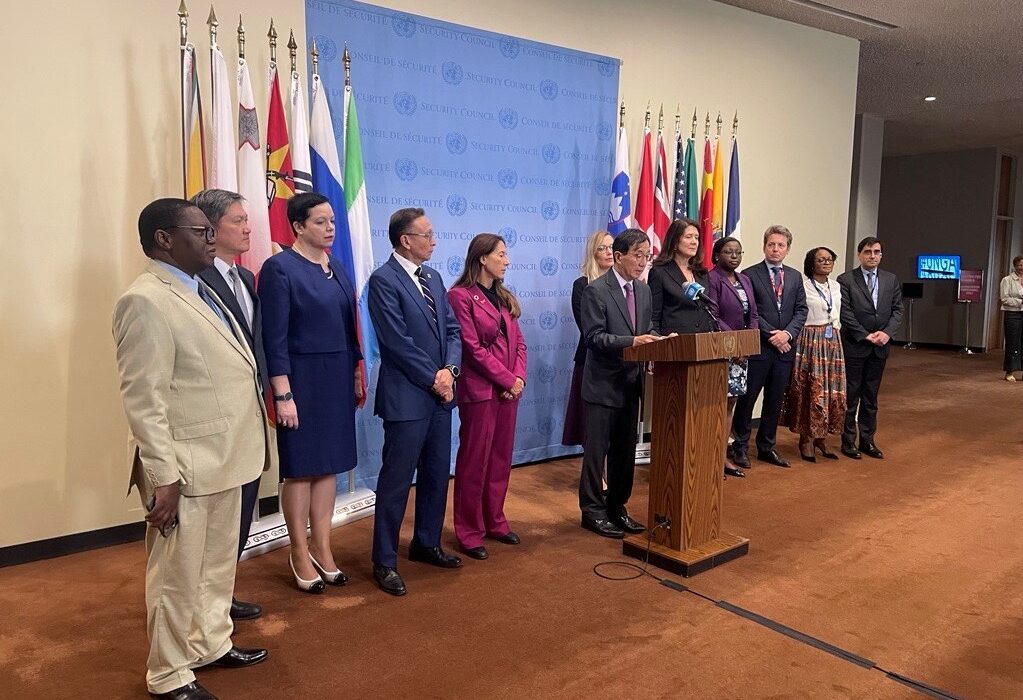In response to Taliban’s newly announced morality law, members of the United Nations Security Council called on the Taliban to swiftly reverse policies that curtail the rights of women and girls in Afghanistan.
The Council expressed deep concern about the ongoing restrictions on women’s education, employment, and freedom of movement.
“The Taliban must listen to and respond to the voices of Afghan women and girls by respecting their rights to education and work, as well as their freedoms of expression and movement,” the statement read.
The statement, delivered on behalf of 12 Security Council members including Ecuador, France, Guyana, Japan, the United Kingdom, and the United States, condemned the Taliban’s systemic gender discrimination. It warned that the new directive would further entrench the widespread restrictions already in place, giving inspectors broad powers to enforce them.
“This latest decree deepens the already unacceptable restrictions on the human rights and fundamental freedoms of all Afghans,” the statement said, highlighting growing concerns within the country. “It will negatively impact generations to come.”
The Security Council has repeatedly raised alarm over the humanitarian crisis in Afghanistan, which has worsened since the Taliban’s takeover in 2021. In April 2023, the Council unanimously adopted Resolution 2681, which called for the full, equal, and meaningful participation of women and girls in Afghan society. The current statement renews that demand, underscoring the importance of reversing these policies for Afghanistan’s future stability and prosperity.
“This is a prerequisite for a peaceful and prosperous Afghanistan,” the members emphasized. They also urged states and international organizations to leverage their influence to promote an urgent reversal of the Taliban’s policies.
The statement noted that the Taliban’s actions undermine efforts by the international community to engage with the regime, citing the recent special envoy meeting in Doha as an example. The Council also stressed Afghanistan’s obligations under international law, particularly the Convention on the Elimination of All Forms of Discrimination Against Women (CEDAW), to which it is a party.
“We reiterate our full support for the United Nations Assistance Mission in Afghanistan (UNAMA) and the Special Rapporteur on the situation of human rights in Afghanistan,” the statement added. The Taliban’s recent ban on the Special Rapporteur’s entry into Afghanistan was described as “disturbing,” and the Council called for the full implementation of his mandate.
The Security Council vowed to continue monitoring the situation closely, noting the severe toll the Taliban’s policies have taken on Afghan women and girls. “Afghan women and girls have suffered for far too long, and they are losing hope for their future,” the statement concluded. “This is unacceptable.”




